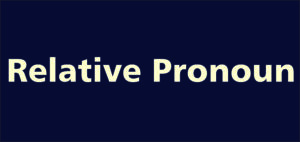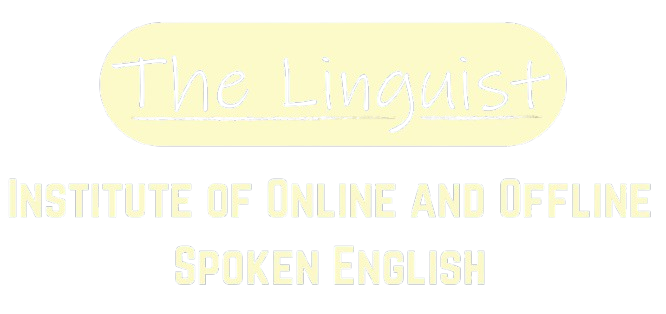
A relative pronoun is used after a noun to make it clear which person or thing we are discussing about. The information that follows the pronoun is contained in what is known as Relative Clause. There is often a bit of confusion about which word to use in various circumstances. Sometimes, we wish to provide information regarding a person, at times about an object and sometimes, it is about a thing that specifically belongs to the person or the object.
This lesson will clarify the usage of relative pronouns and also explain when you do not need to use these pronouns.
Following are the Relative Pronouns:
Who – Whom – Whose – Which – That
– We use them after a pronoun to make it clear which person or thing we are talking about.
For examples:
1) the boy WHO lent me the book
वह लड़का जिसने मुझे किताब दी थी
– the boy WHOSE book I borrowed
– वह लड़का जिसकी किताब मैंने उधार ली थी
– the boy from WHOM I borrowed the book (Very formal)
– वह लड़का जिससे मैं किताब उधार ली (बहुत औपचारिक)
– the boy WHOM I borrowed the book from (formal)
– जिस लड़के से मैंने किताब उधार ली थी (औपचारिक)
In spoken and modern English, it is considered to be the best to use ‘WHO’ and use a preposition at the end of a sentence.
– the boy WHO I borrowed the book from (informal)
2) the novel WHICH I borrowed
उपन्यास जो मैंने उधार लिया था
We can use WHICH, THAT, WHOSE for talking about objects.
हम वस्तुओं के बारे में बात करने के लिए कौन, वह, किसका उपयोग कर सकते हैं।
– the novel WHICH / THAT I borrowed
– उपन्यास जिसे मैंने उधार लिया था
– the movie WHICH / THAT is entitled ‘A Great Man’
– वह फिल्म जिसका शीर्षक ‘ए ग्रेट मैन’ है
– the movie WHOSE title is ‘A Great Man’
– फिल्म जिसका शीर्षक है ‘ए ग्रेट मैन’
You can also say:
– the movie the title of WHICH is ‘A Great Man’
– फिल्म जिसका शीर्षक है ‘ए ग्रेट मैन’
or
– the book of WHICH the title is ‘A Great Man’
किताब जिस्का शीर्षक है एक महान व्यक्ति
3) the station WHERE we met
स्टेशन जहां पर हम मिले थे
We can even use WHERE, WHEN, WHY, THAT for talking about places, times and reason.
– the station WHERE she met (informal)
– वह स्टेशन जहां वह मिली थी
– the station AT WHICH she met (formal)
– जिस स्टेशन पर वह मिली थी
– the day WHEN / THAT she met (informal)
– वह दिन जब / वह मिले
– the reason WHY / THAT she was at the shopping mall (informal)
– कारण क्यों / कि वह शॉपिंग मॉल में थी
– the reason FOR WHICH she was at the shopping mall (formal)
– जिस वजह से वह शॉपिंग मॉल में थी
Where can we drop the relative pronoun?
It is advisable not to drop relative pronoun in Formal Written English. We can remove WHO, WHOM, THAT and WHICH when we want to mention about OBJECT in a sentence, but a relative pronoun cannot be removed when it talks about a SUBJECT in a sentence.
– the boy WHO / THAT gifted me the book. (relative pronoun cannot be dropped)
– वह लड़का जिसने मुझे किताब उपहार में दी है।
– the movie WHICH / THAT is called ‘The Great Man’ (relative pronoun cannot be dropped)
– वह फिल्म जिसे ‘द ग्रेट मैन’ कहा जाता है
– the boy (WHO / WHOM) I dropped at the station (relative pronoun can be dropped)
– वह लड़का जिसे मैंने स्टेशन पर छोड़ा था
(the boy I dropped at the station)
– the book (WHICH / THAT) I sold (relative pronoun can be dropped)
(the book I sold)
– – वह किताब जो मैंने बेची
We cannot remove ‘WHOM’ when it is next to the preposition.
– the boy FROM WHOM I bought the book.
– वह लड़का जिससे मैंने किताब खरीदी।
We cannot remove WHOSE, OF WHICH, or WHERE.
– the boy WHOSE shirt I wore (cannot remove ‘WHOSE’)
– वह लड़का जिसकी शर्ट मैंने पहनी थी
– the movie the title OF WHICH is ‘The Great Man’ (cannot remove ‘WHICH’)
– फिल्म जिसका शीर्षक ‘द ग्रेट मैन’ है
– the station WHERE I met her (cannot remove ‘WHERE’)
– वह स्टेशन जहां मैं उससे मिला था
We can remove ‘WHEN’ and ‘WHY’ in the similar way we can drop ‘THAT’:
– the day (WHEN / THAT) I saw her
– जिस दिन मैंने उसे देखा था
(the day I saw her)
– the reason (WHY / THAT) she was at the shopping mall
– यही कारण है कि वह शॉपिंग मॉल में थी
(the reason she was at the shopping mall)
Few examples of Relative Pronouns:
– I met Vrashal who was returning from college.
– कॉलेज से लौट रहे वृषाल से मेरी मुलाकात हुई।
– Neeta had a book which she bought at a mall.
– नीता के पास एक किताब थी जिसे उन्होंने एक मॉल से खरीदा था।
– The pencil that my mother gave writes well.
– मेरी मां ने जो पेंसिल दी वह अच्छा लिखती है।
– The boy who came here is a player.
– यहां आया लड़का खिलाड़ी है।
– This is the house which is made of clay.
– यह वह घर है जो मिट्टी का बना है।
